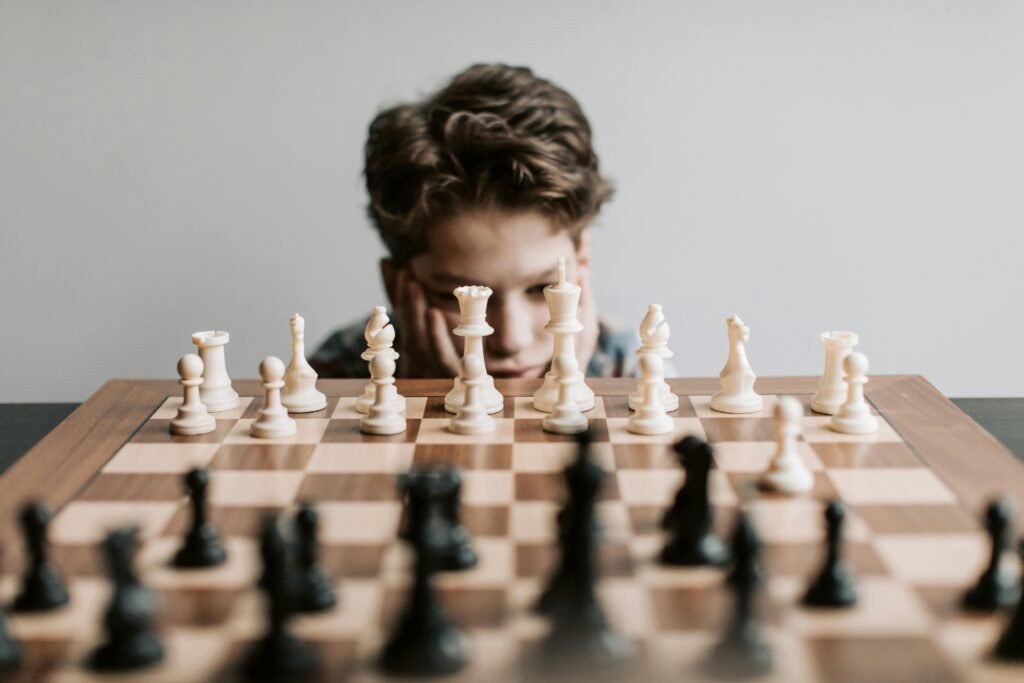Chess is a mind game, and it requires full concentration. Practice and winning—it becomes easy. Most people, when they think of a professional chess player, immediately think of “talent.” And yes, talent is a factor. But if you think that talent is what differentiates casual players from the game’s champions, think again. The path from casual player to bonafide master of the board is one that is long and demanding and contains infinitely more than mere talent.
In fact, many of the best players in the world don’t believe that they’re particularly talented—they believe that they’re hard workers. Becoming a professional chess player isn’t just about tenacity or sacrifice; it’s all about tactics, intuition, and the fearlessness to push forward when the going gets tough. But that understates what it actually takes.
Years of Practice, Not Moments of Brilliance
There’s a common misconception that elite chess players are just born smart—that they began winning tournaments at 6 years of age and never stopped. Yet for every successful game is a backdrop of thousands of hours of preparation. What many do not witness are the early mornings spent reviewing endgames, the late nights analyzing old matches, or the consistent discipline of solving puzzles. A professional player might get in more practice in one month than a casual player has in a year.
And it’s not just playing games. The actual work takes place away from the board. Professionals pore over patterns, analyze games move by move, and even return to their losses to determine what they might have done differently. This is not something that talent can sustain alone. It requires a mindset of discipline and consistency, two things anyone can develop with the proper practice and advice.
Learning to Lose Without Giving Up
One of the most underrated skills in chess is not how to win—it’s how to lose. Because if you’re growing, you’re going to lose. Even early in the careers of the best players, there are games that get away, blunders that go unpunished, and getting outplayed. But here’s the contrast: they do not give up. Rather, they view, study, and get back to the board with improved understanding.
A chess loss can be a humiliating event. You could spend hours upon hours practicing, only to lose the game because you missed one move. But getting better from those losses is part of the journey. It creates resilience—a trait every champion chess player needs to develop.
Mental Strength Matters More Than You Think
Most people don’t appreciate how tough chess is, mentally and emotionally. A serious game can run for six hours, and in that period, a player must concentrate on every single move. Any lapses in concentration could mean losing the entire game. The pressure is intense. In competition, players are sitting once again across from each other in silence, and they are thinking, counting, and waiting for even the most inconsequential of mistakes.
This is not just testing your chess—it is testing your nerve, temper, and ability to be calm in a stressful situation. Building this level of intensity does not result from overnight preparation. It’s about training the mind as much as it is the hands. And as with a muscle, mental strength develops through practice, repetition, and experience.
Support Systems Shape Success
But while chess is a one-on-one game, the journey to greatness comes so rarely without adopting a team. There’s a chess coach, mentor, or study partner behind every champion chess player. A coaching professional provides more than criticism alone. It brings structure and responsibility for the players alongside some of the more profound strategies they may never discover independently. Some of the best players also rely on study groups to keep their minds fresh and grasp what others are thinking.
Even emotional support plays an important role. It’s a hard road to be elite, and having people who understand the value of motivation helps you to keep going. So it may be a single-player game on its face, but winning in chess is often thanks to the team behind the scenes.
Sacrifice Is Part of the Journey
Ask any serious player what they have sacrificed for chess, and the list will be long. Rest days, vacation time, and parties often get trampled by practices and tournaments. At higher levels, chess is a way of life. The travel becomes routine, with players traveling to various cities, states, or even across countries.
It takes hours of prep for a single game, and a tournament can easily take a week. It’s not a career you end up in by accident. You don’t just do something like that in half measures. And that commitment necessitates making decisions that other people might not understand. For gaming fans, though, it’s worth it. As it’s not only about playing, they are focusing on excellence.
Final Thoughts
Chess is frequently glamorized as a battle combined with intuition and smartness. The reality is much less glamorous and much more inspiring. To be a professional chess player is not easy. It is an up-and-down life of highs and lows, successes and failures. But most important of all, talent doesn’t matter the most—commitment does.
It’s the one who comes to work every day. The person who pushes through even when it is hard. The one who fails and still believes in the process. After all, being a great chess player is not something that is innate. One shot at a time, a game at a time, a single moment at a time—it’s something you make.










































